The first snowflakes of the year have fallen and, if you haven’t begun winterizing your sprinkler system, you need to. Split or ruptured pipes can cost you hundreds if not thousands of dollars to repair.
We have put together some easy, step-by-step instructions on how you can winterize your sprinkler system yourself. We recommend the same technique used in the northeast, the blow out method, for winterizing a sprinkler system.
This method gets all the water out of the lines and is an easy and effective way to winterize. You can get all the parts for this do-it-yourself project at Louie’s ACE Home Center.
Use an air compressor with an 80 to 100 cubic foot per minute (CFM) rating. Make sure the sprinkler system you want to winterize has a mainline for water of 2-inches or less. You can purchase an air compressor, or rent one from our ACE hardware rentals. We have all the hook ups as well.
Locate the air hose connections. Make sure you use a connection located after the PVB back flow preventer. In the Fallon area, homes built in the last 15-20 years have a back-flow preventer on the sprinkler system. If you don’t have one, crack the pipe and the sprinkler valve and connect the air hose there to assist you in winterizing the sprinkler system.
You can make your own attachment (a jig) and connect it to your irrigation system. We can help you locate the parts and make it. Jigs are made with a washing machine hose, cut to 18 inches, a quick coupling, and a threaded to bared connector to combine the coupling and the hose. Screw it into the existing hose bib.
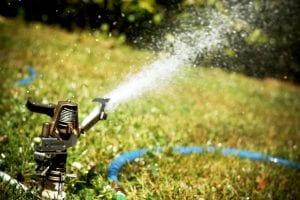
Trace the pipe back or locate the main water meter for your house. Make sure no new water can flow into the lines.
Most systems have a drain plug or sill cock drain. Open the valve and drain it into a bucket. Allow the pipe to drain completely. Go outside and close the back-flow isolation valves. Open and drain the test cocks on the PVB.
Keep the valves closed and attach the air compressor hose to the fitting. DO NOT run a compressor with an open valve. It can lead to a damaged zone valve gate.
Start with the zone which is highest in elevation and furthest from the compressor and turn it on. Blow out each zone for two minutes. Do this until no water can be seen coming out of the heads. Repeat the process until it is dry.
Disconnect the air compressor and release any air pressure from the lines. Open and drain all test cocks on the PVB to make sure no water is left inside.
You do this to ensure any trapped water is gone from the upper areas of your system. Turn and leave these valves at a 45-degree angle to complete winterizing your sprinkler system.
If you rented the compressor from our ACE hardware rentals, don’t forget to return it in a timely manner so someone else can use it to winterize their sprinkler system. Happy winterizing!
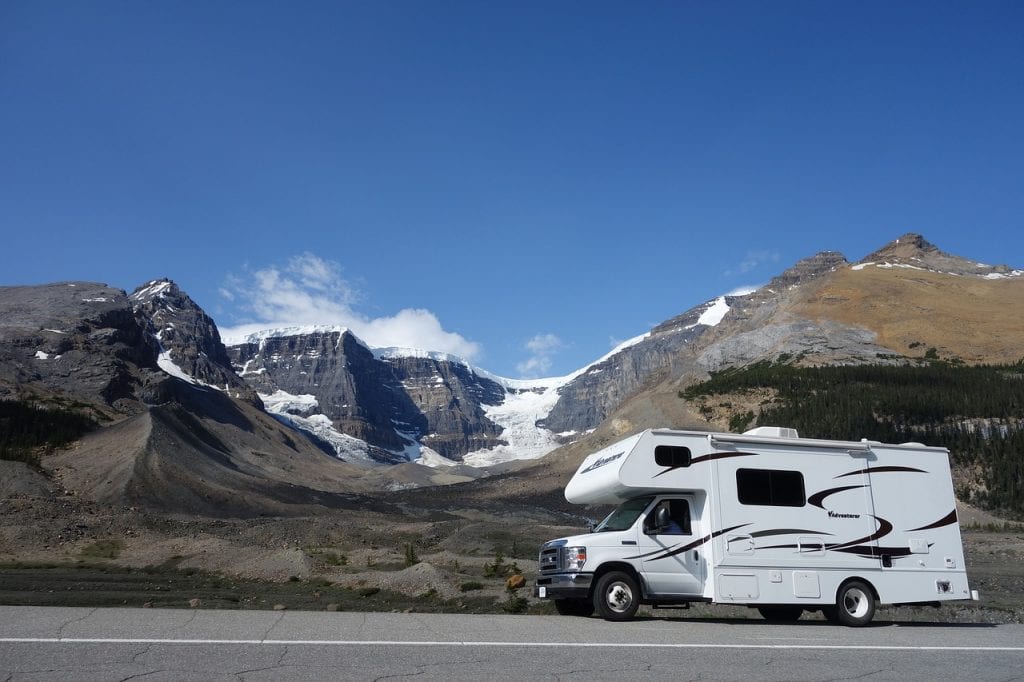 Are you ready to start planning for your spring and summer camping trips? A few months ago we showed you how to winterize your RV to get ready for the colder months. Now, we'd like to share our best tips for de-winterizing your RV, so that you can be on the way for your next adventure.
Are you ready to start planning for your spring and summer camping trips? A few months ago we showed you how to winterize your RV to get ready for the colder months. Now, we'd like to share our best tips for de-winterizing your RV, so that you can be on the way for your next adventure.
Before you go out for a trip, make sure you check your RV for gaps, cracks, and tears. You’ll want to fix these before the season starts to ensure a safe and enjoyable experience.
Imagine spring cookouts, breezy air, and a lush, green lawn to enjoy it all on. In Fallon, Nevada, keeping a nice lawn can take a lot of work. Unlike other climates, it takes the use of sprinklers and regular upkeep to keep your grass bright and vibrant. With that comes regular maintenance, especially after the winter season. Luckily, at Louie's Ace Hardware, we have all of the lawn care hardware rentals that you need to have the yard that you've been dreaming of.
After the long winter, thatch can build up and prevent your grass from looking its best. When the dead grass that gets stuck between living grass and the soil is not able to receive proper air, water, and nutrients, your lawn can look less than stellar. At Louie's Ace Hardware, we carry all the lawn care hardware rentals you need to remove thatch and restore your lawn to its prime.
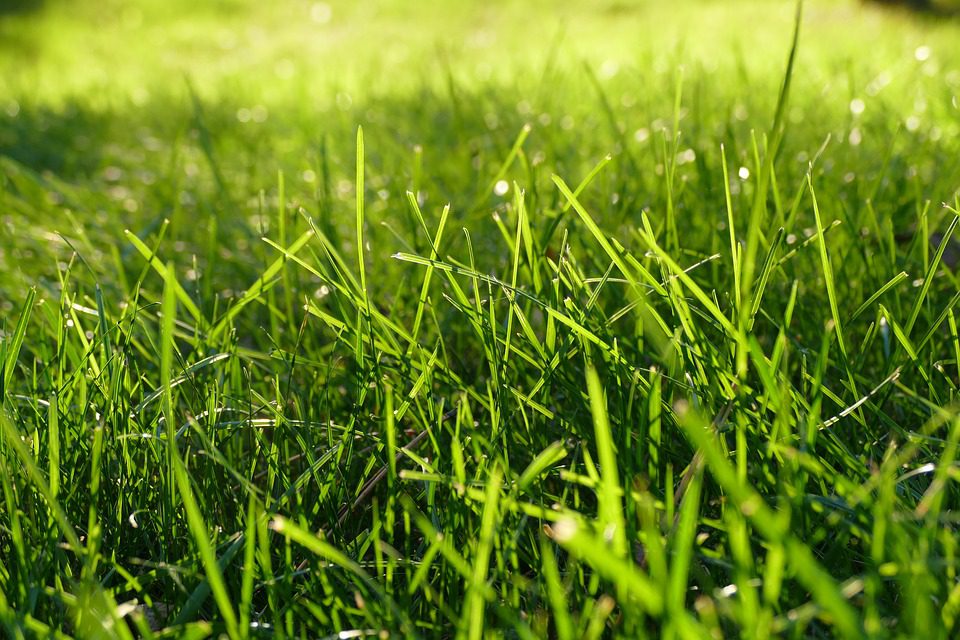
It's that time of the year again! Time to aerate your lawn to allow air, water, and nutrients to get to get to the grass roots. If you're lawn is looking dead and colorless, this is a great way to alleviate soil compaction. In dryer climates like Nevada, aerating can save your lawn. Stop by our hardware rentals department for all the equipment you need to get your lawn looking in tip-top shape!
Weeding or digging a garden by hand can be tedious and time consuming. That's where a rototiller comes in hand. These handy tools can make gardening a breeze. We carry them as a rental item, so that you can have the added convenience without the pressure to store them throughout the year.
A lawn roller can be great for erasing damage caused to your lawn throughout the winter. You can flatten ant and mole hills quickly, and make your lawn look flawless.
There's nothing that says spring more than a lush lawn. So what are you waiting for? Stop by to check out our ACE hardware rentals you may need for your lawn and garden this season. We make lawn care and other hardware rentals easy and affordable, and our knowledgeable and friendly staff are ready to assist you. Want to inquire about our hardware rentals? Give us a call. We hope to see you soon!
With winter upon us, our homes are much colder and our electricity bills are skyrocketing. Turning up the heater is the first thing we do as soon as we feel the cold, but there are other alternatives. If you invest in the appropriate window coverings, you won’t have to run the heater as often and will save a bunch of money. Although, purchasing blinds can require a large upfront payment, you are making an investment in your home and it will pay off.

Of course it does! Windows are the greatest source of cold into and warmth out of your house. It has been said that windows account for 40% of heat loss in homes. You spend all this money on a heater, just to lose almost half of it to the outside. Window coverings wouldn’t allow this loss to occur. If you are able to trap a layer of air in between blinds and the window, the heat won’t be able to escape and cold won’t be able to enter.
Making the most of the newest addition to your home is actually quite simple. The best way to control the temperature in your home without touching the thermostat is to time the opening and closing of your blinds. During the day, you are going to want to open the blinds to let in all the sunlight and warmth. However, when dusk falls, close the blinds to keep the natural heat inside and the cold out.
Because every home and customer is different, there is not a one-size-fits-all window covering. The perfect window covering for you depends on the style you are looking for, the size of your windows, and the cold protection you desire. Louie’s Ace Hardware offers a wide variety of mini-blinds and basic rollers to fit any need. In addition, at Louie’s, you are able to special order products from Hunter Douglas. Whatever your style, we have you covered!
For other home projects, we also offer ACE hardware rentals if needed. Contact us today!
After the summer fun is done and the last camping day of fall has passed, it’s time to start thinking about winterizing your RV. Winterizing your RV may seem like a daunting task. But at Louie’s Ace Home Center, we have everything you need to get the job done. If you are staying in your RV, you are going to want to keep your water lines functional. Be sure to wrap your lines with foil and open your faucets slightly if you are planning to stay in the RV. If you are storing it, follow these simple steps to winterize your RV.
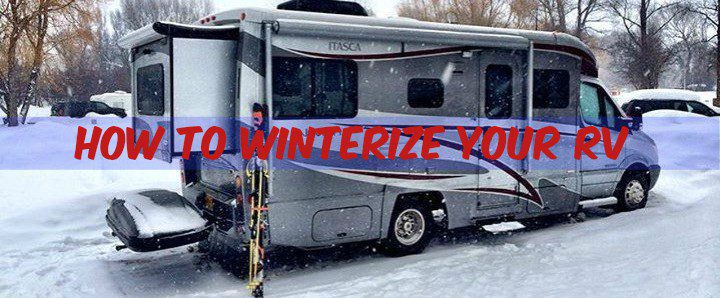
To fully winterize your RV, be sure to remove any perishables, laundry, trash, and valuable items. Fix anything that is broken as it will make it easier to use the RV when its time. Cover all your vents and holes so pests don’t see your winterized RV as a place to get warm. Cover your RV with an RV cover, and don’t forget your tires, too. Some people lift their RVs to take the pressure off the tires as well.
Spring has definitely sprung, and for those of you who are desperate to get out into the garden and get started, here are some top tips to help you make the most of the longer days and prepare a garden to be proud of all year round.
It doesn’t matter if you’re a green-fingered expert or a complete beginner, all gardens need a thorough tidying up after the winter. Mulch your borders with compost or manure and stop any young weeds in their tracks. All your hard work will pay off when it’s time to sow seeds and start the most fun part of gardening- planting!
Definitely most people’s favorite part of gardening! After all, that hard work tidying up and removing unwanted plants, it’s time to get planting. If you didn’t manage to plant trees and shrubs during the fall, the ground should now be free from frost and therefore soft enough for you to get planting now. That way, your new plants will be fully established by the time winter hits again.
Ground frost can cause roots to lift out of the ground during cold weather. It’s important to pack them back down again during spring. This will give your plants a fighting chance of survival!

If you have any deciduous trees (those that shed their leaves in winter), make your own leaf mold by putting the fallen leaves in trash bags with a little water. Tie the tops of the bags and make a few small aeration holes in the side before storing them in a sheltered part of your garden. By summer, you’ll have nutritious leaf mold ready to pamper your plants with. It can be added to soil and potted plants. Plus it actually reduces the need for watering: no bad thing here in the desert!
Sow summer bedding plants indoors in early spring. They can then be moved outdoors in late spring/early summer, once the weather warms up and there’s little chance of frost damage.
If you planted vegetables last year, remove any old crops completely before sowing new seeds. Prepare seedbeds and fertilize your soil ready for this year’s crops, then look forward to all those delicious homegrown dinners! We hope this post has inspired you to get out in the garden and get busy. At Louie’s ACE Home Center, we have everything you need to fully embrace the joys of spring gardening, so pay us a visit today! We offer lawn care equipment from our ACE hardware rentals.
As the colder months are approaching, so are hefty energy bills if the proper preparations are not taken. Winterization is a key step in ensuring your home stays nice and cozy without spending a pretty penny.
We’ve compiled a handy checklist of easy ways to reduce your energy bill this winter, and ensure your home is winterized and ready to withstand dropping temperatures.
Your doors and windows are major culprits of letting cold air into your home if they aren’t properly sealed. Properly sealing these areas is extremely important, and the U.S. Department of Energy estimates that drafts in your home waste 5% to 30% of energy. Weatherstripping is great for drafty windows and can be easily applied and measured to fit any window. Draft guards can either be purchased or made yourself, and are adjustable depending on the width of your door, and its clearance from the ground.
Believe it or not, ceiling fans are designed to go in two different rotations, one is for hotter weather, the other for the cold. Make sure your ceiling fan is going clockwise during the winter months. This ensures warmer air is being pushed downward towards the center of the room and the walls, pushing cold air upwards.
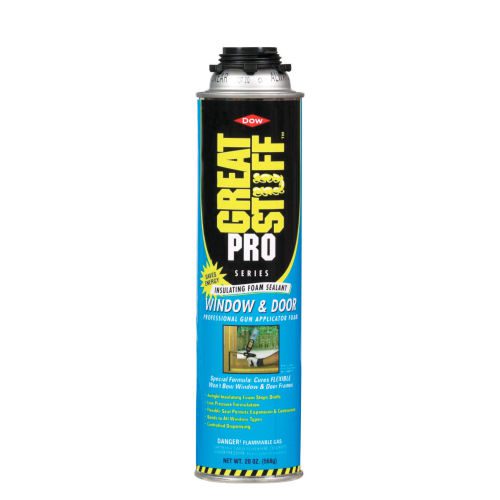 Caulk
CaulkMuch like draft guards and weatherstripping, caulk helps you close up cracks that are letting a draft into your home. Use caulk to fill cracks or holes in non-movable components in your home like cracks in siding, or along windows that cannot be opened. Cracks can be often overlooked as a cause of drafts and cold temperatures within the home. However, when they are filled, can make a noticeable difference. Don't skip out on this winterization tip.
Replacing the filters in your home will help to make your central air and heating system work a little less. When filters are clogged, it requires a lot more energy to push out your desired heat levels. Another added benefit; you’ll be breathing much healthier air with a brand new filter as well.
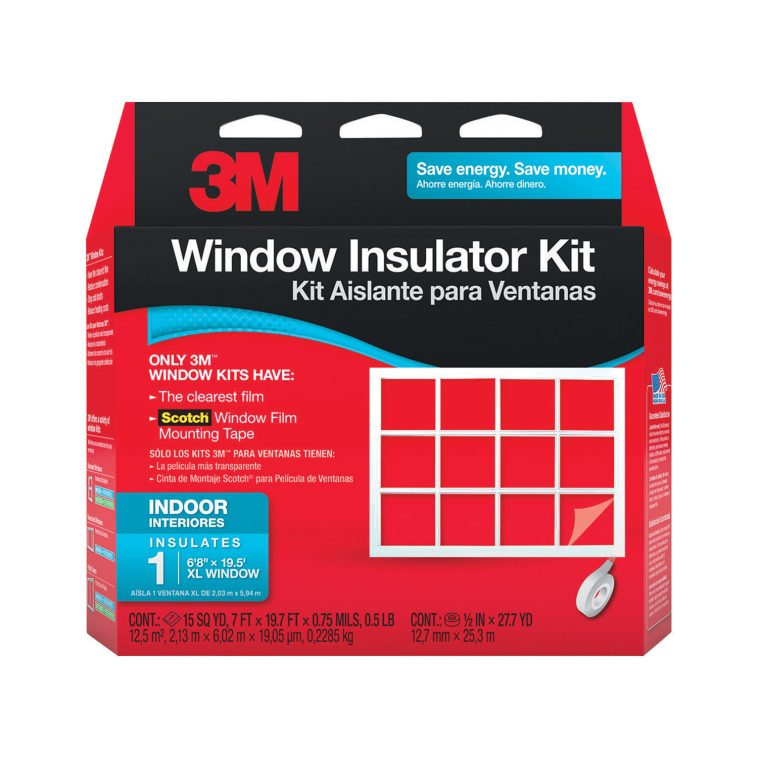 Window Insulation
Window InsulationBelieve it or not, the glass on your windows themselves can be letting cold air through. If you’re looking to save extra money on energy costs, or you’ve taken other winterization measures and they’re still not helping, it may be worth it to consider window insulation. There are many kits containing film that you can easily place over the glass surface of your windows that are designed to help insulate. If you’re not concerned with the appearance, bubble wrap also works well and provides extra insulation these film kits do not provide.
A crucial step in ensuring your pipes don't freeze, and subsequently burst, outdoor faucet covers are one of the most important winterization steps. It’s first important that you drain these faucets and detach any hoses or other attachments. Afterward, attach a faucet cover and you’re set for the rest of the winter!